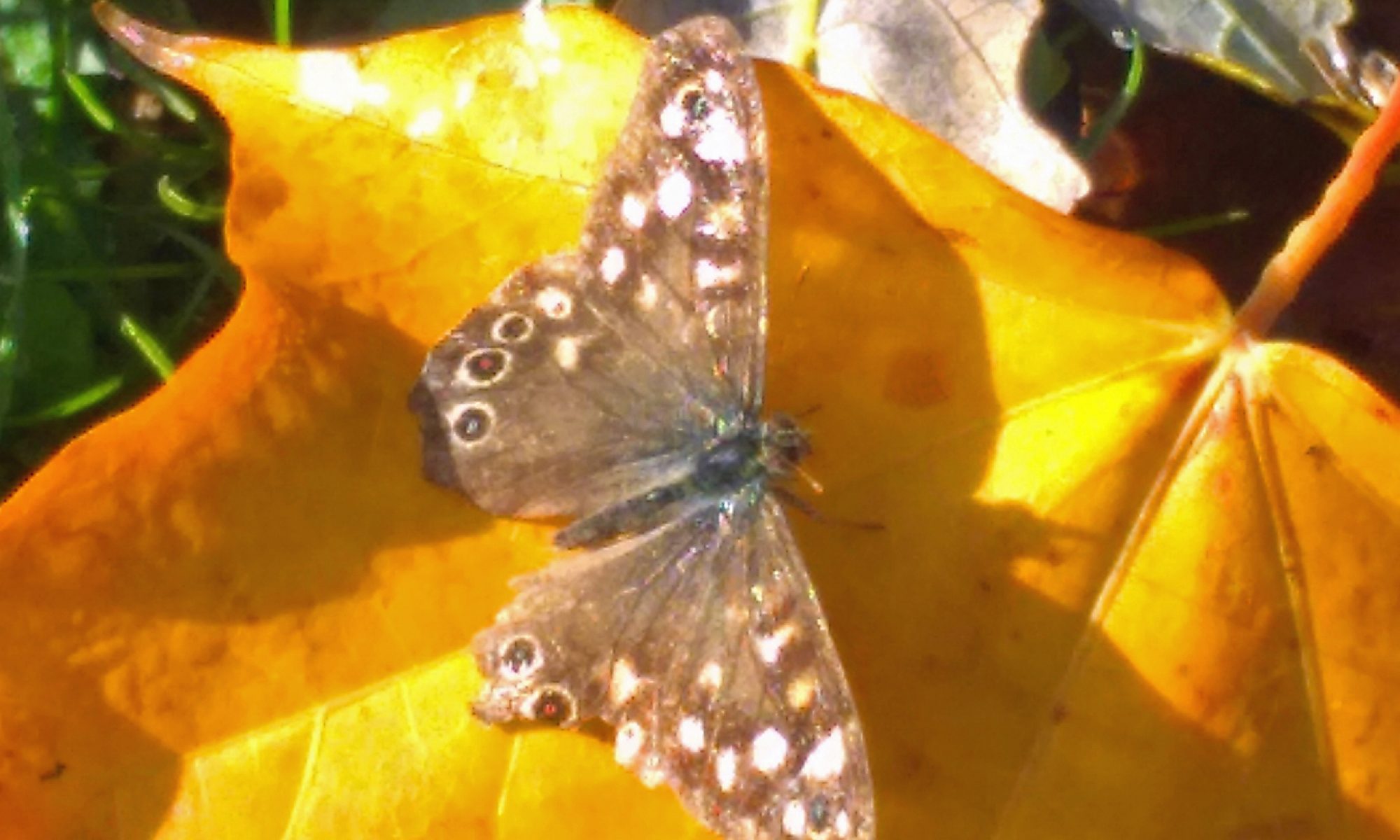
I have never seen so many acorns in Nowhere Wood. Everywhere I step, I am treading on acorns. Acorns are the fruits of oak trees and this year it certainly has been a bumper harvest. Biologists call this a “mast year”.

The air in Nowhere Wood in April and May was very hot and still. This allowed the oak pollen to hang in the air near the feathery stigmas of the oak flowers. Perfect conditions for pollination and making acorns.
July and August were warm and wet, ideal conditions for growing a record crop of acorns.

The oak trees in the wood are perhaps seventy or eighty years old now and tower above the other trees. They are successful, but for how much longer? The oldest trees are falling down, some by lightning strikes during thunderstorms.
It is difficult for young acorns to grow into oak trees, because the floor of the wood is covered by thick ivy and brambles. There is a battle going on here for light, space and water that makes an episode of Eastenders look tame!

Everything is connected together, and a change to one organism affects everything else. The squirrels and the jays will be needing the oaks to remain successful. This is the way of life in Nowhere.
![]()
- Walk round an open space or a park near where you live. How are the living organisms depending on each other to survive?


